“A Long-Hidden Plan”
Thoughts leading toward Christmas
By Robert Moynihan, reporting from America
Note: The following is the text of my Editorial for the December 2009 issue of Inside the Vatican magazine, now at the press.
Following the editorial is a brief account of a car crash I was involved in on Wednesday, November 25, the night before Thanksgiving, near Washington DC, with some further reflections.
I was not seriously injured, but I am grateful to be alive, and wished to share that sentiment with you at the beginning of this Advent season. —The Editor
EDITORIAL
On the Incarnation
What really happened on the first Christmas? And what does it mean to us today? Recalling the mystery, suffering, and joy of Christmas
By Robert Moynihan
“We preach what is not known, that it may become known.”
—John Henry Cardinal Newman
In this Christmas 2009 issue of Inside the Vatican, we center the entire magazine on the fact of Christmas, that is, the Incarnation of God in the baby Jesus, that real historical event which changed the universe, which created the Church, and which is the ultimate source of all our hope.
We are grateful that Cardinals Comastri and Farina, and Father O’Connor and Professor Paolucci, agreed to write brief reflections for us on the meaning of Christmas, and we urge our readers to meditate on these brief but eloquent Christmas testimonies. (pp. 30-35)
We live in a busy, troubled world, and it is tempting to take time here to denounce the “evils of the day” — apostasy from the faith, sins of many types, false teachings from many pulpits, unjust laws from many legislatures, the oppression of the weak and poor in many places which cries out to God for help — which cries out to all of us for help.
But at Christmastime it is essential to recall our great hope: that evil is already conquered, that the victory of life over death, of good over evil, has already, and eternally, been accomplished.
And it began in a manger, in a cradle, with a young mother, Mary, and a helpless babe, as each of us once was.
So I wish to focus on that hope, and, in a few words, drawing on two early Christian writers, relay this “good news.”
The story begins, as all good stories should, with a mystery, and a secret. The anonymous Letter to Diognetus, written around 125 AD (and used in the Roman Catholic Office of Readings for December 18) discusses this secret plan of salvation from sin and death which St. Paul calls “the Mystery.” The letter is addressed to a pagan reader and therefore is clear, simple, and unadorned.
First, the anonymous Christian author tells us about God. “God, the Lord and maker of all things, who created the world and set it in order, not only loved man but was also patient with him,” he writes. “So he has always been, and is, and will be: kind, good, free from anger, truthful; indeed, he and he alone is good.”
Then, this early Christian tells us about God’s secret plan to end the reign of sin and death and bring about an “era of holiness” — though many have thought God would do nothing.
“God devised a plan, a great and wonderful plan, and shared it only with his Son,” he writes. “As long as he preserved this secrecy and kept his own wise counsel he seemed to be neglecting us, to have no concern for us. But when through his beloved Son he revealed and made public what he had prepared from the very beginning, he gave us all at once gifts such as we could never have dreamt of, even sight and knowledge of himself.”
The author acknowledges that it took some time for this plan to unfold, many centuries in fact.
“When God had made all his plans in consultation with his Son, he waited until a later time, allowing us to follow our own whim, to be swept along by unruly passions, to be led astray by pleasure and desire,”?the author says. “Not that he was pleased by our sins: he only tolerated them. Not that he approved of that time of sin: he was planning this era of holiness.”
Then God acted — Christmas, the Incarnation.
“When our wickedness had reached its culmination, it became clear that retribution was at hand in the shape of suffering and death. The time came then for God to make known his kindness and power (how immeasurable is God’s generosity and love!). He did not show hatred for us or reject us or take vengeance; instead, he was patient with us, bore with us, and in compassion took our sins upon himself; he gave his own Son as the price of our redemption, the holy one to redeem the wicked, the sinless one to redeem sinners, the just one to redeem the unjust, the incorruptible one to redeem the corruptible, the immortal one to redeem mortals.”
From a letter of St. Athanasius (297-373 AD) to Epictetus we learn of the role in this plan of Mary. (The text is in the office of readings for the feast of Mary, the Mother of God, on January 1).
“The Word took to himself the sons of Abraham, says the Apostle, and so had to be like his brothers in all things,”?Athanasius says. “He had then to take a body like ours.
“This explains the fact of Mary’s presence: she is to provide him with a body of his own, to be offered for our sake. Scripture records her giving birth, and says: ‘She wrapped him in swaddling clothes.’
“Her breasts, which fed him, were called blessed. Sacrifice was offered because the child was her firstborn. Gabriel used careful and prudent language when he announced his birth. He did not speak of ‘what will be born in you’ to avoid the impression that a body would be introduced into her womb from outside; he spoke of ‘what will be born from you,’ so that we might know by faith that her child originated within her and from her.
“By taking our nature and offering it in sacrifice, the Word was to destroy it completely and then invest it with his own nature, and so prompt the Apostle to say: ‘This corruptible body must put on incorruption; this mortal body must put on immortality.’”
And so that is the news: a long-hidden plan to give life eternal to dying men, has, through Mary, brought us incorruptible life, and this divine plan is still unfolding today.
A Midnight Car Crash
It unfolds in each of our lives, and each of us realizes that, more or less, I think, especially in moments of crisis.
I passed through such a crisis just a few days ago, and it gave me pause.
Here are excerpts from the note I sent out to several close friends on November 25, the day before Thanksgiving. I had just come from Russia to America, and had driven to my son’s college to pick him up and bring him to my parents’ home for Thanksgiving. As we drove in a light rain on a slick highway — I-95 just south of Washington DC — another vehicle smashed into us from the side and sent us spinning out of control and off of the highway at more than 60 miles per hour.
Friends,
Well, I was “lucky” not to be killed in a car crash last night.
At about 1 am — I was driving — in the rain, in the middle or right lane of traffic, about 65 mph. Totally normal.
Suddenly, WHAM, someone hit our car from the side, hitting the rear passenger door, and that pushed the rear of the car around to my left, so that for a moment we were BACKWARDS in thick traffic, headlights streaming into our eyes, skidding… We kept skidding, all the way around, in a 360, and then we went off the highway into the median area, where we went about 50 yards towards the trees, finally stopping in the mud.
“Well, we’re alive,” I said to Chris. “You ok?”
We sat there a moment. The right rear passenger door was smashed in about a foot….
Chris had bumped his head hard on the roof, and he said he was ok, but that his head hurt. Later, I found a little blood on the top of his head.
We got out. The other guy was stopped, with damage to his front left fender. He smelled of alcohol. He had been drinking.
Evidently, he had drifted to the right, got out of control, and swerved back into our car, sending us spinning…
I came within inches of being hit by five or ten vehicles traveling at 80 mph behind me, including tractor trailers, which would have crushed me. If the Civic had not twisted and skidded off the road onto the grass median, we certainly would have been hit and likely killed…
I am grateful Chris and I been “given” the opportunity to live a little longer.
This means a true Thanksgiving.
Bob
Reflections for Advent
If we are preparing for Christmas, and looking forward to the joys of Christmas, we should also remember that we need to prepare, at all times, for death.
In preparing for death, we should live with ever greater simplicity and authenticity.
None of us knows the day or the hour our lives may end. But we all know that that day and hour is coming — must inevitably come.
And whether that day is far in the future, or tomorrow, the fact that it is coming should give us pause. We should live in such a way as to be ready at any moment for that day to come upon us.
I do not know if I was ready. I do know that my life did not end on that highway seven days ago. Nor did my son’s life end.
For this, I am grateful.
Who is this Jesus, who was born on Christmas?
Pope Benedict has been spending every spare moment of his time studying this question, preparing his second book on Jesus. I am going to re-read the Pope’s first book, and try to understand what he has written about Jesus, and share that in these messages.
I re-read the Letter to Diognetus, and found this description of the early Christians, and wonder if we are as they were:
“For Christians cannot be distinguished from the rest of the human race by country or language or customs. They do not live in cities of their own; they do not use a peculiar form of speech; they do not follow an eccentric manner of life…
“They live in their own countries, but only as aliens. They have a share in everything as citizens, and endure everything as foreigners. Every foreign land is their fatherland, and yet for them every fatherland is a foreign land. They marry, like everyone else, and they beget children, but they do not cast out their offspring…
“They obey the established laws, but in their own lives they go far beyond what the laws require. They love all men, and by all men are persecuted. They are unknown, and still they are condemned; they are put to death, and yet they are brought to life.
“They are poor, and yet they make many rich; they are completely destitute, and yet they enjoy complete abundance.
“To put it simply: What the soul is in the body, that Christians are in the world. The soul is dispersed through all the members of the body, and Christians are scattered through all the cities of the world. The soul dwells in the body, but does not belong to the body, and Christians dwell in the world, but do not belong to the world…
“The world hates Christians, even though it suffers no wrong at their hands, because they range themselves against its pleasures. The soul loves the flesh that hates it, and its members; in the same way, Christians love those who hate them.
“The soul is shut up in the body, and yet itself holds the body together; while Christians are restrained in the world as in a prison, and yet themselves hold the world together.
“The soul, which is immortal, is housed in a mortal dwelling; while Christians are settled among corruptible things, to wait for the incorruptibility that will be theirs in heaven.”
It is with such thoughts that we set out on our way towards Christmas.
“He that takes truth for his guide, and duty for his end, may safely trust to God’s providence to lead him aright.” —Blaise Pascal (French mathematician, philosopher, physicist and writer, 1623-1662)
Note: Some of the items below, including subscriptions to the magazine, might make an unusual, fairly inexpensive, and very special Christmas gift to friends and loved ones. First, a very special Russian Christmas Concert DVD, which I have watched and found very moving; second, a detailed discussion of all the issues surrounding the Pope’s decision to restore the old Mass to a position of honor in the Church, and thir, subscriptions to the magazine, the gift which brings Rome and the Vatican into your home month by month. —The Editor
Christmas Oratorio (Russian Concert) on DVD
The music tells the Christmas story in the deep, rich tradition of Russian ecclesial music, using the Russian language and English subtitles.
On December 17, 2007, a leading Russian orchestra performed an exceptional “world premiere” concert of Russian Christmas music at the National Shrine of the Immaculate Conception in Washington, DC. Now you can order your copy of the concert on DVD, which includes English sub-titles.
The music is a completely new composition by a young Russian Orthodox Bishop, Hilarion Alfeyev, 42, who, at the time, was the Russian Orthodox bishop for all of central Europe, based in Vienna, Austria and now is the head of the External Relations Department of the Russian Orthodox Church.
Order today! Makes a great Christmas gift! Order one for yourself, one for a loved one and one for a friend… great price break at three copies! Click here to order!
A Talk by Dr. Robert Moynihan on CD
“The Motu Proprio: Why the Latin Mass? Why Now?”
In order to understand the motu proprio one must understand the history of the Mass. Dr. Moynihan gives a 2000 year history of the Mass in 60 minutes, which is clear and easy to understand. Dr. Moynihan’s explanation covers many questions, like:
– How does the motu proprio overcome some of the confusion since Vatican II?
– Is this the start of the Benedictine Reform?
– The mind of Pope Benedict: How can the Church restore the sense of the presence of God in the Liturgy?
To subscribe to the print edition of the magazine, click here

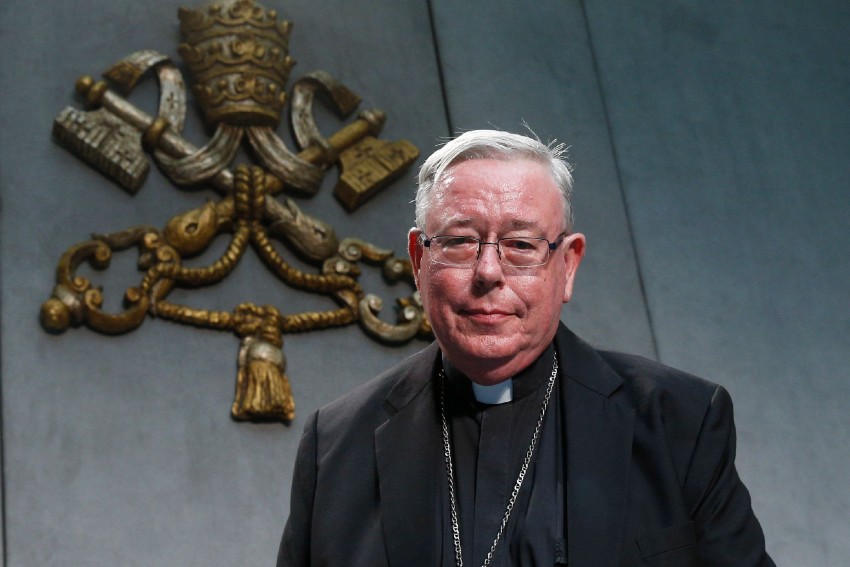
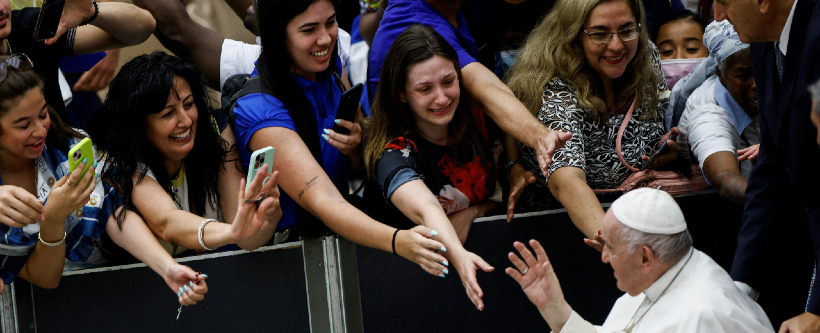
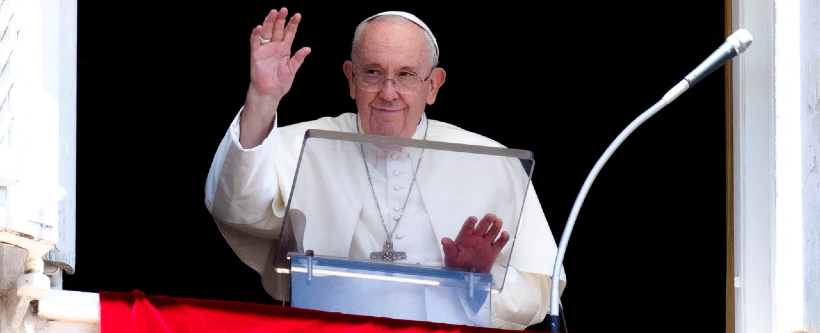
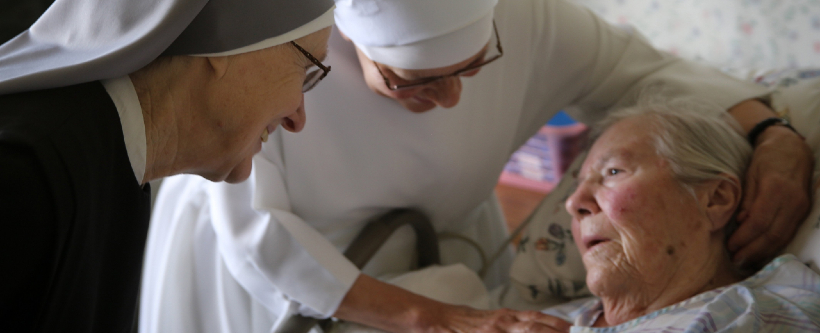
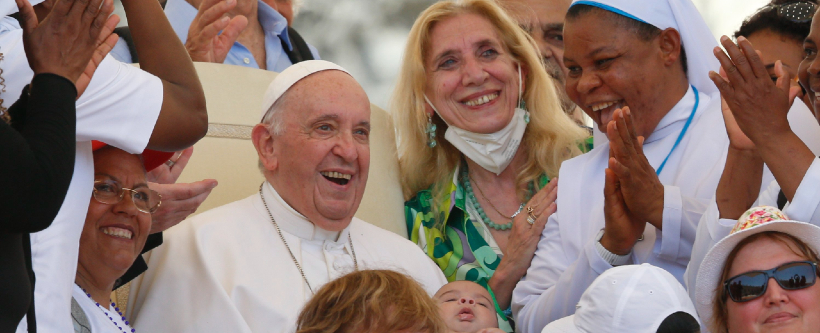
Facebook Comments